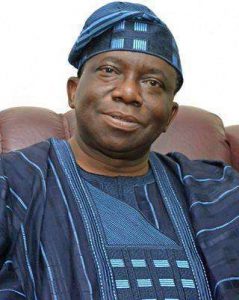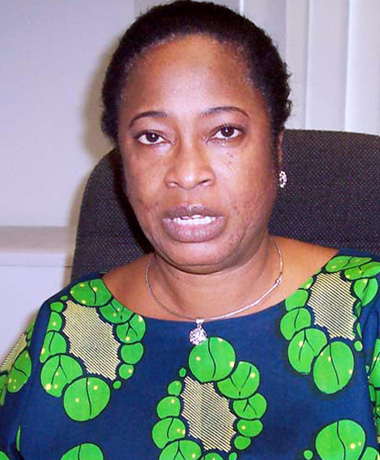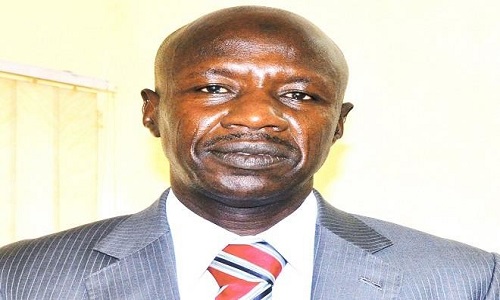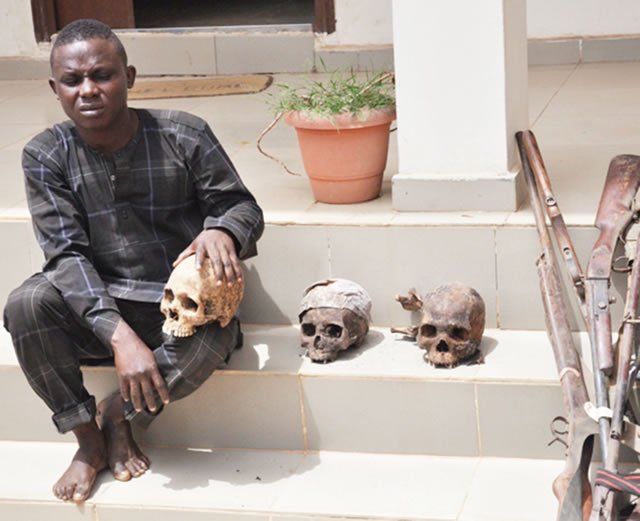
The Minister of Health, Prof. Isaac Adewole takes a look at the vexed issues in the health sector and President Muhammadu Buhari’s health challenges. He spoke with Iyobosa Uwugiaren
How is your ministry responding to the outbreak of Ebola in the Democratic Republic of Congo?
Ebola is not indigenous to Nigeria. For it to come up in Nigeria it has to be imported, just like it happened the other time, when Amos Sawyer came into Nigeria. So, what we have done is to sit down, set up an Ebola Preparatory Group, chaired by Dr. Joshua Obasanya, who actually led the Ebola group to Liberia and Sierra Leone. That group is mapping out strategies and getting the laboratories ready for diagnosis. I have been to the airport to see what is happening, and I have also met with the Director, Port Health Services to ensure that we man all our ports, not just airport, land and sea, because, people could come in from anywhere. If you take care to notice screening being done at various airports, without you noticing it, you’re being screened and this has never stopped. We will screen you; what we have at airports are body-thermo screeners that monitor your body temperature. If your body temperature is above normal, it will trigger an alarm. So, we will know you have fever, we will pull you out. We will also continue to work with the media to increase level of awareness, promote a culture of hygiene and ensure that people get use to hand washing at all times. By and large, we will put it under lock and key. The important thing is to reassure Nigerians that there is no course for alarm. They shouldn’t panic.
Apart from the airports, where foreign visitors normally pass through, what of the land borders?
We have Port Health Service at the major borders; Illela, Idi Araba and Seme. At the Federal Executive Council (FEC) meeting today, some other border points were mentioned, so we are manning those ones as well.
So in other words, your advice to Nigerians is that there is no cause for alarm?
None, for now; but they should maintain a high level of suspicion. Everybody should be a surveillance officer. If you notice any unusual illness, let us know.
What if we have this disease, do we have the necessary structures to respond to it?
We do; it is better than 2014. In 2014, the National Centre for Disease Control (NCDC) was not fully on ground; now it is fully on ground. We have over 300 field epidemiologists, ready to move. We have a standby team of 10 officers now who will be ready to be deployed to the hot spots.
Lassa fever has continued unabated; do we have enough vaccines to arrest the disease?
There is no vaccine for Lassa as of now that is being used on population basis. What we have for now, is calling on people to maintain a high level of personal hygiene. We need to maintain high level of suspicion. We are getting healthcare workers to be on the alert so that we don’t miss the diagnosis. I’m sure you realised, we have missed a few cases about people with prolonged fever; our doctors and nurses did not suspect that it was Lassa fever. I think this is what we have to work against. We now have a network of laboratories across the country that can diagnose Lassa fever, which to me is a welcome development. And there are drugs available, repositioned across the country; so that if we have a case of Lassa, we can quickly move and treat them.
In 2016, you came up with a new National Health Policy. Have you started to implementing it?
The policy actually seeks to implement Universal Health Coverage (UHC) as an instrument to foster socio-economic development in Nigeria. It is a new message; and the message is that when we improve health, the socio-economic development in this country will definitely be taken for granted. Many countries that have developed economically have also invested in health. So, it’s actually a document that is being implemented. And one of the things we are doing is to develop the Strategy Health Plan. The policy will drive the strategy plan. We are having meetings; we are going to cost it, so that it can fit into the national budget. We hope that the strategy health development plan will fit into the 2018 health budget. So that many of the major initiatives that we want to do, we will do them based on facts. We will do budget submission also based on facts and in line with our national priorities.
Primary healthcare issue was so dear to President Muhammadu Buhari. How far have you gone with this policy?
It’s still very dear; it’s a long distance race; it is not something that we can achieve in one day. But what is gladdening to me is the fact that we have adopted it as a philosophy. We have many people working together. I did mention that the primary healthcare should be the platform, the first point of call for anybody. It is only the sick ones, the serious ones that should go to the tertiary centre, and I’m happy that the message is moving fast. There are many people working together, we are working with the states. We do not own primary health centres (PHCs), so we are actually going to support the states. I can tell you right away that many states are doing excellently well; Kaduna has done 255 at the last count; Niger has done over 60; Borno is on course; Kano is course; Sokoto is on course, and many of our states. I have been to Abia, many of the states are on course with respect to primary health revitalisation. International partners are also supporting us; DFID owned by the British Government is supporting about 950 PHCs in six states of the North. European Union (EU) has also signed an agreement with us, they will also support PHC revitalisation among other things. We used internal resources to do 110 as a pool for concept. In 2017 proposal, we also have money allocated for it. We are also calling on the states to partner with us, rise up and make sure that all over the country, we have a functional network of PHCs.
This government you are serving will be two years on May 29; could you be specific on what this government has achieved in the healthcare?
The first thing is that the president assured us that healthcare will be accessible and available to Nigerians and we are on the path to achieve this. The first thing we have done is to approve the policy, that’s the third policy in the history of Nigeria. So, this government can take credit for putting a policy in place, that’s number one. We launched a programme called ‘Save One Million Lives Initiative’, where we took money from the World Bank and gave it to the states as seed grants to develop programme that will impact on the lives of women and children because we want many of our indicators, maternal and child health indicators to change. We don’t want our women to die as if they are chickens; that’s number two. We initiated a programme called Rapid Response Results Initiative, distinctively factored for the poor. We started with 10,000 surgeries for the poor and I am happy to say that all over the country we are offering care to poor Nigerians.
We have developed a lot of policy documents; we are working on Fistula; we developed a policy to further our new born care. We have developed a policy for coricidin. We are working with our pharmaceutical groups, our drive is to make sure that we patronise made-in-Nigeria goods. Last year, I challenged our local manufacturers to produce made-in-Nigeria nets, they are out; which is also something that we should count for this administration. So we are moving on day by day, to make sure we fulfill our pledges. We have started PHC revitalisation, as part of the RRRI. Very soon, we are moving on to really injecting lives to our tertiary centres. We have identified three reasons why people go out of the country and die: cancer, renal and cardiac. In 2017 proposal, we have a project called strategy investment in tertiary centres; we are going to work on seven centres. When that work is completed, the seven centres will be fully equipped to handle cancer, renal and cardiac in Nigeria.
The information we are getting from teaching hospitals across the country is not good enough. What is government doing to equip them?
That’s what I have just said. Number one, we are giving them seed grants, ranging from N120 million to N300 million. The medical centres will get N120 million while the teaching hospitals will get N300 million through the window of NHIS for them to take care of basic needs. We will then build on this – using the strategy partnership.
Each teaching hospital in the first round will be left with about N20 million to N5 million to upgrade their facilities. We have identified one per each geo-political zone as well as National Hospital, Abuja. We will work on University of Ilorin Teaching Hospital; we will work on Ibadan, UBTC, Benin City, UNTH, Zaria and Maiduguri this year.
On a daily basis, most of the Federal Medical Centres and teaching hospitals are not able to cope with the influx of patients may be due to lack of personnel. How is government addressing the challenge?
I don’t think that’s correct, we have personnel. My Gynaecology Department in UCH, Ibadan has 22 gynaecologists; the entire Oyo State partly has four. The problem of the hospital is not lack of personnel, in fact, they are over staffed. The problem is that on a regular basis, you continue to fund them. We must provide commodities, we must upgrade the service. The problem is partly infrastructure, water and electricity, and we are working round the clock to make sure that they have water and electricity.
How about the issue of maternal and child health, which has remained a very big issue?
That’s why I mentioned the issue of Save One Million Lives, which is essentially toned to address maternal and child health. This is a grant where each state is working on issues that will make sure that women receive anti-natal care, receive care of the child, get immunised and so on. But apart from that, we are working with the Office of the Senior Special Assistant to the President on Sustainable Development Goals (SDGs) to use Conditional Cash Transfer to offer anti-natal care to poor women. We are working to ensure that we get free ante-natal care and free delivery.
The ministry has been having problems with resident doctors working for federal medical agencies. Have you been able to resolve the issues?
We do not have problem per se, but we have challenges with remuneration, because different hospitals are violating the different regulations and circulars, they pay differently. For example, we look at the payment of House Officers, it will be shocking to learn that four different hospitals pay four different salaries to House Officers, with a gap of about N40,000. The Federal Medical Centres pay more than the teaching hospitals, which is ridiculous. So we are trying to sanitise this; we are working with the Wages and Salaries Commission to ensure that things are done properly.
Some experts are beginning to express worries over the products from medical schools from various universities; is the ministry concerned about that?
The issue of training is actually under the purview of the university system; but we need to work with them. Medical and Dental Council is under us. What Medical and Dental Council has done is to limit the number of doctors that can graduate to the spaces and resources available. They have done this and they are implementing it faithfully, and we are in supporting them.
The Ministry of Health has a lot of challenges; are you comfortable with the budgetary allocation?
I am not sure any minister will be comfortable with his or her budget. They will always ask for more. The important thing is whatever thing we have, we use it well. To me that’s the first step; use it well and then you can always ask for more. I think health is lucky because we have tremendous support from international partners; but we need to improve on the meagre resources. We are calling on philanthropic organisations for more assistance. We are quite grateful for what they have done. There are quite a number of them like Dangote, Emeka Offor, they have supported health; we need more; T Y Danjuma Foundation is also supporting health, but we need more. We also need to use some other instruments to mobilise resources like Alcohol Tax, Tobacco tax, telecom tax other things to ensure that there is money in health. Health is beyond health. Health is a security issue; it’s a welfare issue; it’s a psychological issue, social issue, and to me like I have said, it is also a human rights issue. Nothing gives you more returns like investment in health. When you invest one dollar, you get the same dollar back, direct and indirect.
Have we had any Polio case this year?
We have not had polio this year. We had four cases in August last year. But we are working hard to ensure that there will be no more. The Army is also helping us to create corridors to assist in providing support to the immunisation team. I think we are trying.
As a Minister of Health, what is your assessment of the President’s health challenges? Nigerians are worried?
There is no course for alarm. Mr. President usually brags about it, he is an unusual man. He came back and told us that he was ill, and he was treated. When we have that type of leader, I think we can go to sleep.
Is the issue so severe that he could not be treated here in Nigeria?
One thing we must realise is that health is a complex issue. There’s what we call patient-doctor relationship; there is also a bond between the patient and the doctor, and these are things we can’t play with. I had patients in Ibadan they still call me and said ‘oh, we will like to see you’. I said ‘no, I’m no longer available; why can you see somebody else?’ Many of them are reluctant, that’s the complex thing about health. We should give him that choice. What we really wish is for Mr. President to be hale and hearty. This is also a complex country, I am not too happy about some of the insinuations; we should pray for our leaders. We should continue to pray for him.
– Thisday






